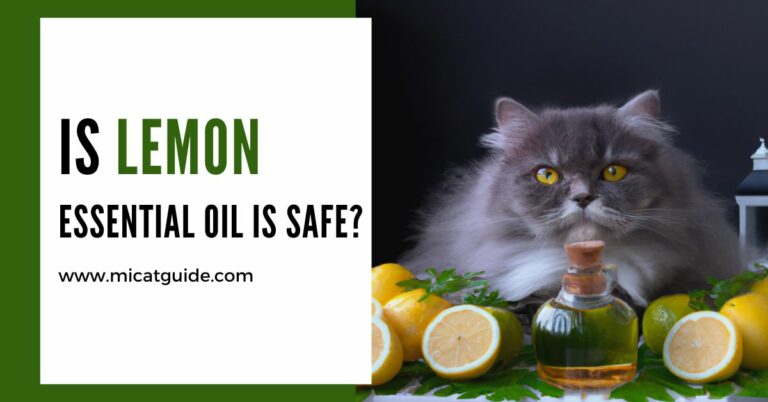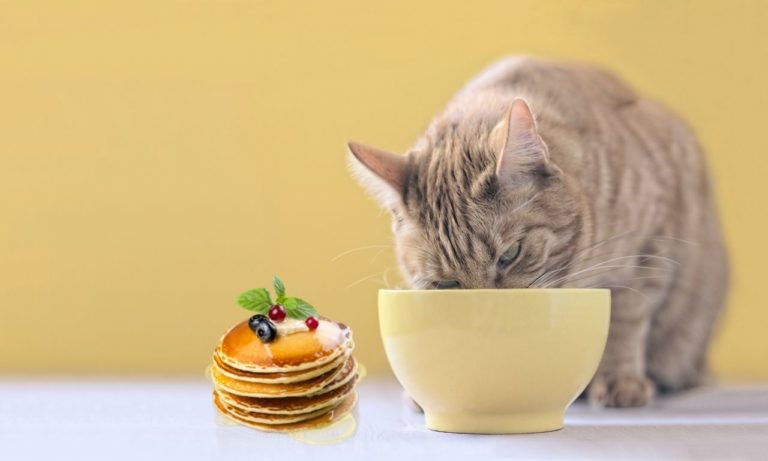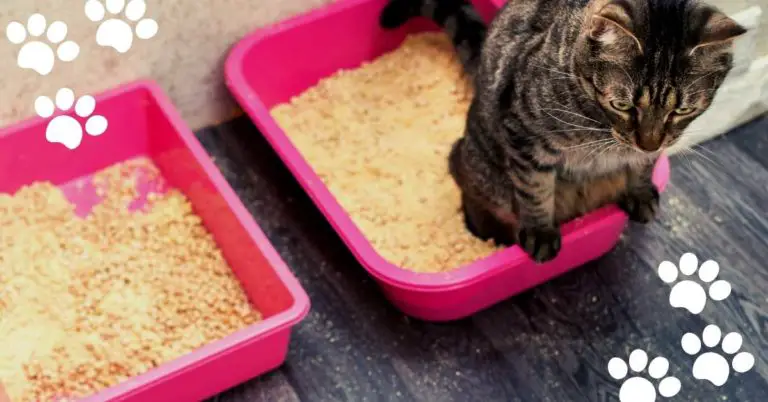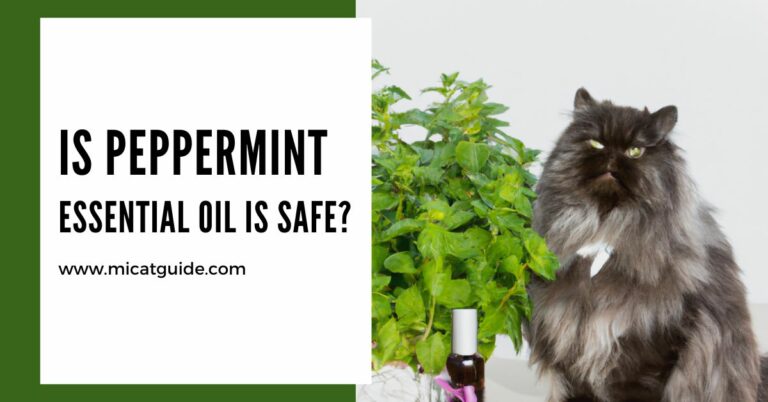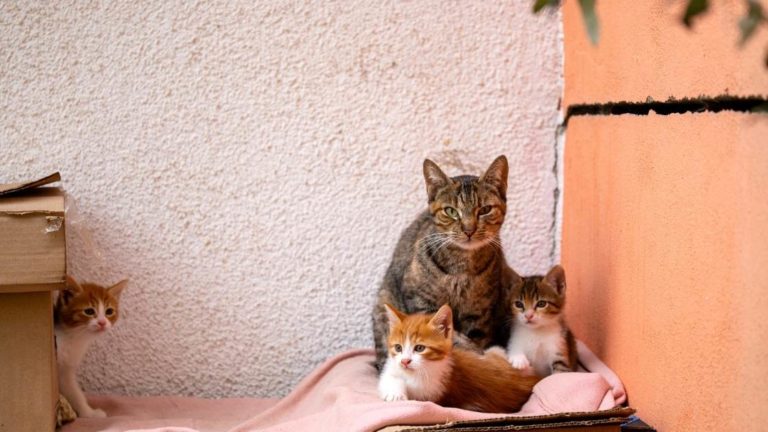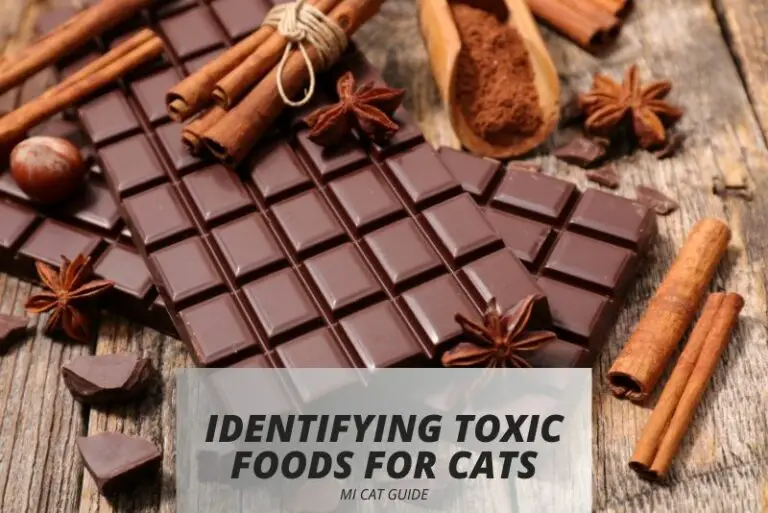Why Do Cats Chuff? (10 Possible Reasons)
Cat’s is a well known domestic animal that has been kept as a pet for centuries. They are popular for their independent nature, and often considered to be low-maintenance pets. Cats have a reputation for being aloof and uninterested in their owners, but many people find them to be affectionate companions.
While cats are often thought of as solitary creatures, they do have a form of communication that is unique to them. When cats are happy or content, they will often make a soft chuffing sound. This is thought to be their way of expressing satisfaction and contentment.
So why do cats chuff? Cats chuff for a variety of reasons, including hunting, courtship, and getting your attention. In most cases, chuffing is nothing to be concerned about.
Here I’ll explore a few reasons why cats chuff and what it means when they make this sound.
Understanding Your Cat Vocalizations
I personally think that every cat owner should learn about the different vocalizations their cat makes. It’s a great way to better understand your feline friend and to build a stronger bond with them.
Here I’ll briefly go over some of the different vocalizations that cats make and what they typically mean.
Cat Chuffing (A Sign of Happiness or Friendship)
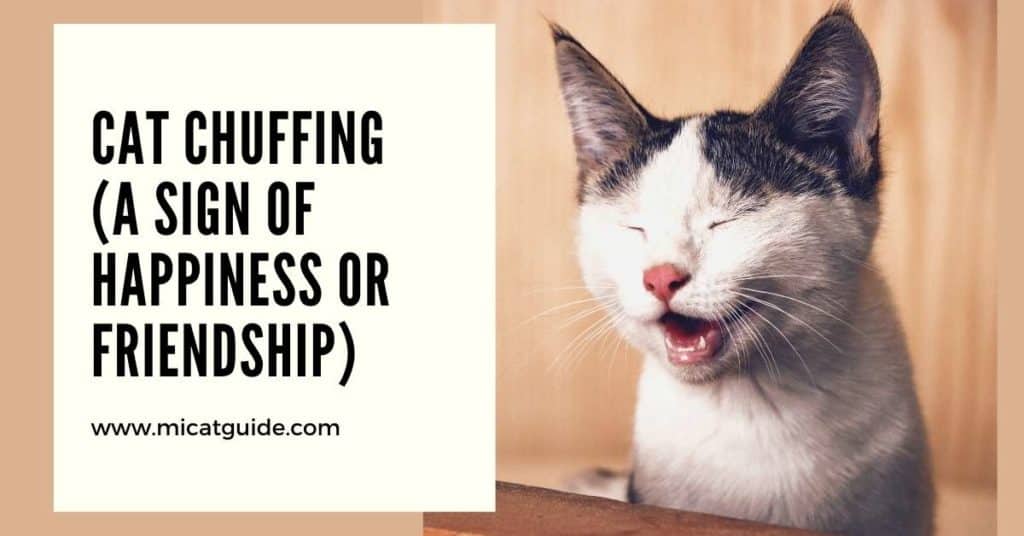
Chuffing is a vocalization that domestic cats make when they are pleased or want to show friendly affection. Chuffing sounds like a cross between a purr and a chirp, and it is often accompanied by slow blinks or half-closed eyes – what some people call a “cat kiss.”
While the meaning of chuffing is fairly straightforward, the reason why cats make this sound is not as well understood. One theory is that chuffing evolved as a way for cats to communicate with each other without getting too close – think of it as a feline handshake.
Another possibility is that chuffing helps cats to bond with their human companions, as it is often elicited by petting or eye contact. Regardless of its origins, there’s no doubt that chuffing is one of the many ways that cats express their unique personalities.
Cat Meowing (Often a Plea for Attention or Food)
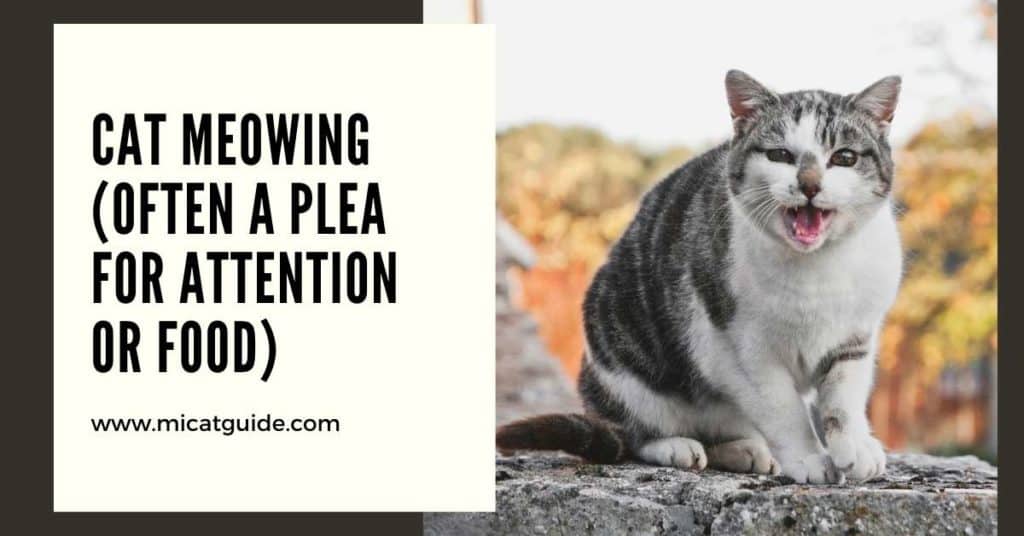
A cat’s meow is one of the most distinctive and adorable sounds in the animal kingdom. But have you ever wondered why cats meow? Unlike many other vocal creatures, cats don’t use meowing as a form of communication with other cats. Instead, they reserve this special vocalization for humans. So why do they do it?
There are a few theories about why cats meow. One popular theory is that cats learn to meow from their mothers. When they’re kittens, they mew to let their mother know they’re hungry or need attention.
As they get older, they continue to use this vocalization to get what they want from humans. Another theory is that cats meow as a way of exercising their vocal cords. Just like people, cats need to use their voices regularly to keep them in good condition.
Whatever the reason, there’s no denying that a cat’s meow is music to our ears. And even though we may never truly know why cats meow, we can still enjoy the sound of their sweet voice.
Cat Hissing (A Sign of Anger or Fear)
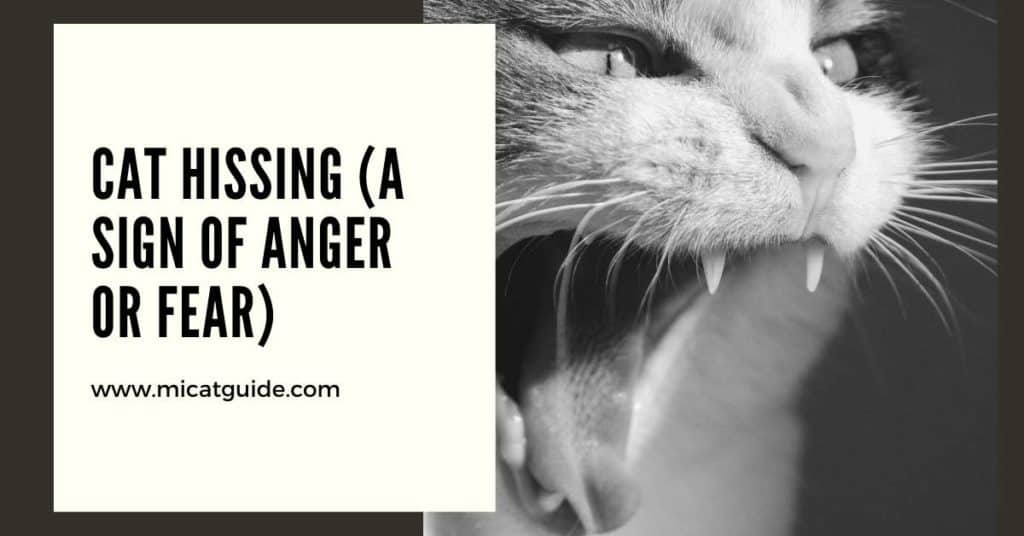
A cat’s hissing is an arresting sound, and one that often surprises people who are unfamiliar with feline body language. Hissing is a defensive behavior that cats use when they feel threatened or uncomfortable.
By drawing attention to themselves and making themselves appear larger, cats hope to intimidate their potential aggressor and dissuade them from taking any further action. Hissing can also be a sign of fear or anxiety, as well as pain or frustration.
In some cases, a cat may hiss as a warning to other animals – such as when a mother cat is defending her kittens. Whatever the reason for a cat’s hiss, it is always best to err on the side of caution and give them the space they need to feel safe.
Cat Growling (A Sign of Aggression)
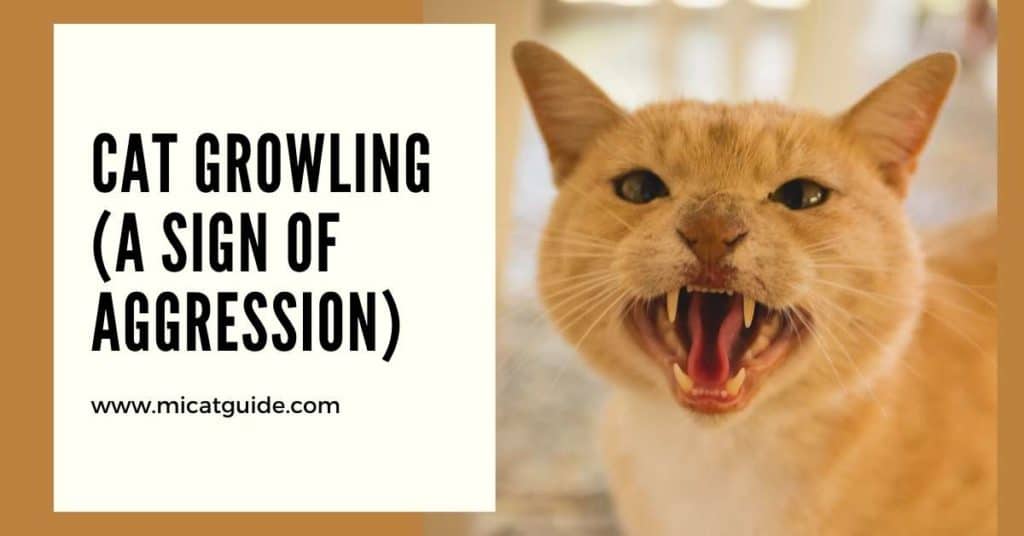
When a cat growls, it’s trying to communicate something. Usually, the message is “back off!” Cats growl when they feel threatened or afraid. They may also growl when they’re hurt or in pain.
Sometimes, cats will even growl when they’re feeling playful. No matter what the reason, it’s important to take your cat’s growling seriously.
After all, it’s their way of saying “I need some space!” If you’re not sure why your cat is growling, try to observe their body language. Are their hackles raised? Are they hissing? Are they hiding behind furniture or under a bed? These are all signs that your cat is feeling scared or threatened.
If you see these signs, give your cat some time to calm down before you approach them. And if you’re ever in doubt, it’s always best to err on the side of caution and contact a qualified veterinarian or animal behaviorist for help.
Cats Purring & Roaring (Happiness, Frustration)
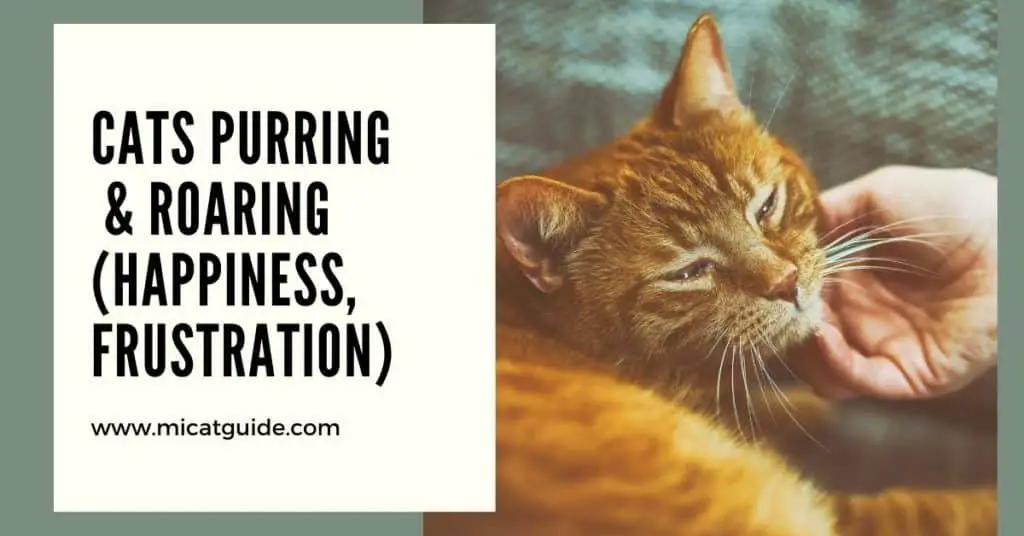
Cats have been revered as mystical creatures for centuries, and their unique ability to purr has only added to their allure. But what exactly is purring, and why do cats do it?
Purring is actually a low frequency vibration that cats produce by using the muscles in their larynx and diaphragm. While the exact mechanism is still not fully understood, it is thought that purring may help to heal wounds and improve bone density.
Cats also tend to purr when they are happy or content, which suggests that it may be a way of communicating positive emotions.
Interestingly, big cats such as lions and tigers also produce low frequency vibrations, but these are generally much louder and more intense than a cat’s purr.
These larger cats typically roar when they are angry or threatened, but some experts believe that they may also use roars to communicate affection towards their cubs. So the next time you hear your cat purring, remember that it may be trying to tell you something!
10 Possible Reasons Why Your Cats May Chuff
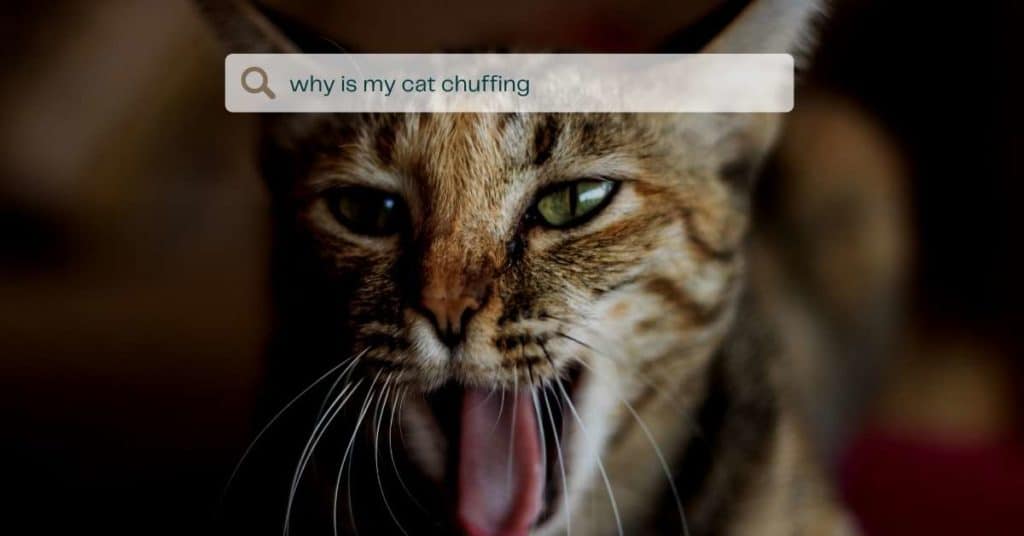
Now that I’ve gone over what chuffing is and what it typically means, let’s explore some of the different reasons why cats chuff.
1. They’re Content and Satisfied
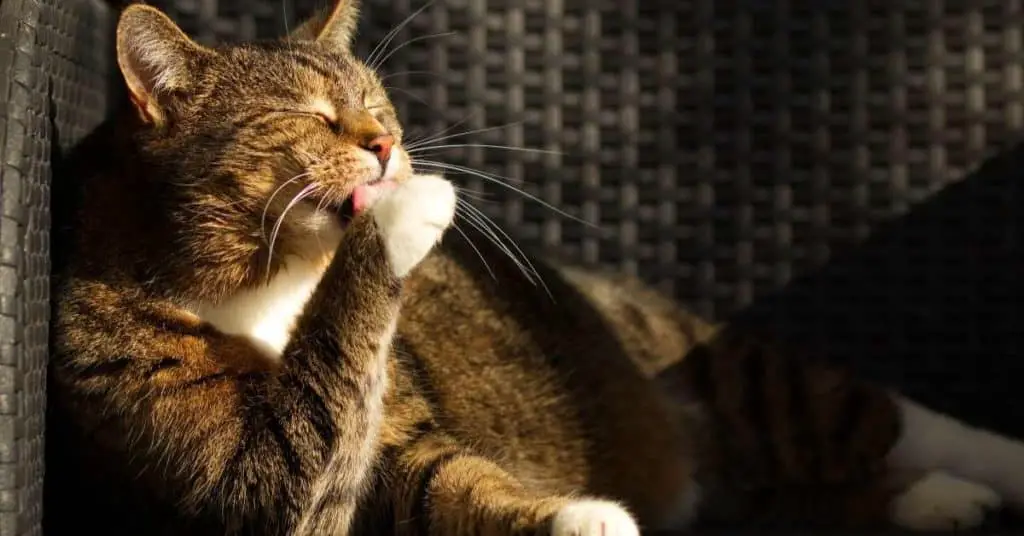
One of the most common reasons why cats chuff is because they are content and satisfied. Cats groom themselves frequently and will often chuff after they have finished licking themselves clean. This is their way of indicating that they are happy and content with their current situation.
A study published in the Journal of Experimental Biology found that when cats are content and satisfied, they often make a soft chuffing sound. So if you hear your cat chuffing, it’s a good sign that they are happy with their current situation.
2. They’re Pleased with Their Food
A study recently published in the journal “Animal Cognition” suggests that cats may chuff because they are pleased with their food. The study was conducted by observing how domestic cats responded to different types of food.
The results showed that cats were more likely to chuff when they were given wet food, as opposed to dry food. This suggests that the sound of chuffing may be a way for cats to express their satisfaction with a meal.
However, the study also found that cats were more likely to chuff when they were given food that they liked, regardless of whether it was wet or dry. This indicates that the sound may also be a way for cats to show their approval of a particular type of food.
Overall, the study provides new insight into the mysterious world of feline communication.
3. They’re Requesting Food
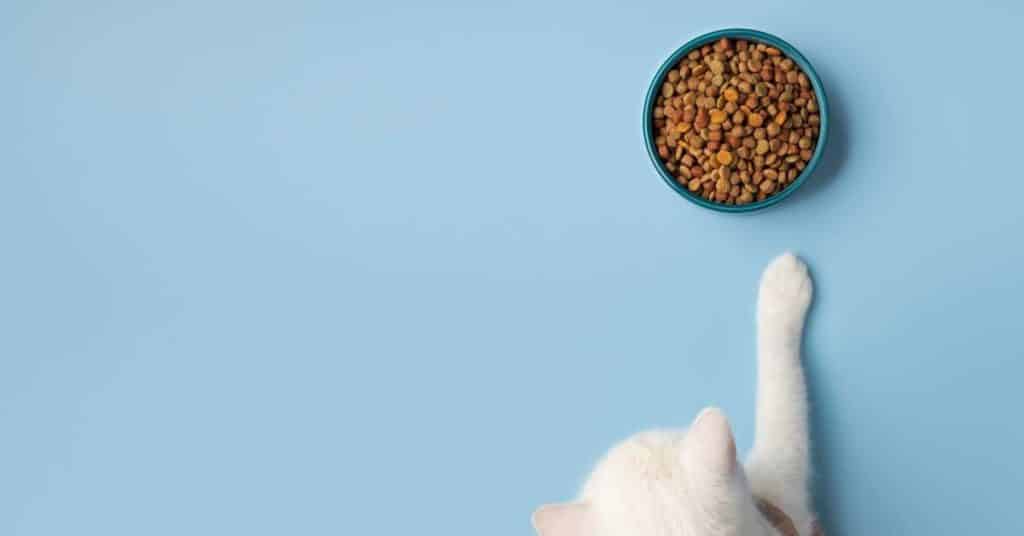
In addition to chuffing when they are pleased with their food, cats may also chuff when they are requesting food. This is because the sound of chuffing is similar to the sound of a purr.
In a study published in the journal Animal Cognition, researchers found that when cats were presented with two different types of food, they were more likely to make a chuffing noise when they wanted the more desirable option. For example, when given both wet and dry food, the cats were more likely to chuff when they wanted the wet food.
The researchers believe that the chuffing noise is a way for cats to get our attention and let us know what they want. So next time your cat makes this sound, pay attention to what they are trying to tell you!
4. They’re Saying Hello
Another common reason why cats chuff is because they are saying hello. When cats meet each other for the first time, they will often make a chuffing noise as a way of saying hello.
This is similar to the way that humans shake hands when they meet someone for the first time. The chuffing noise is a way for cats to show that they are friendly and non-threatening.
If you hear your cat chuffing at another cat, it’s a good sign that they are getting along well.
5. They’re Showing Affection
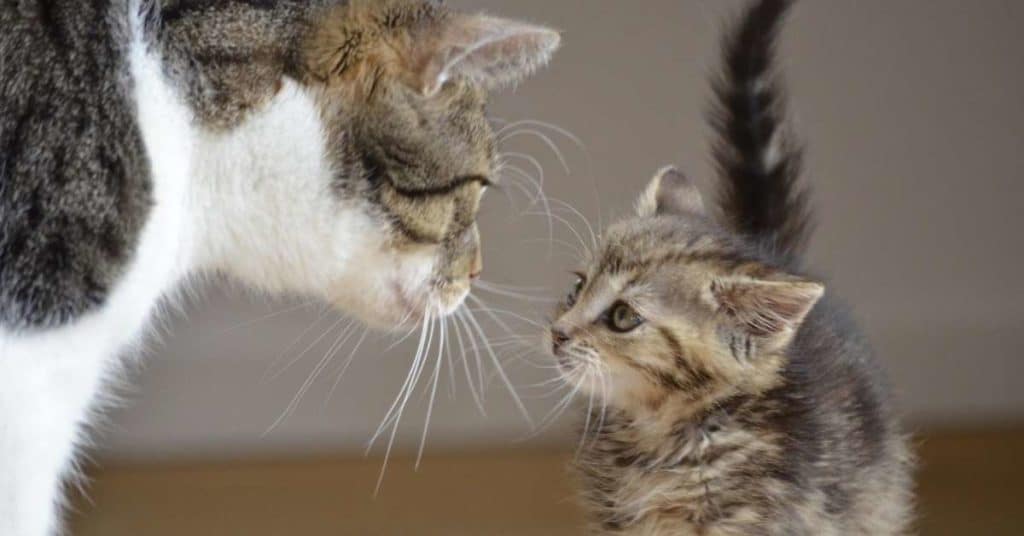
Cats may also chuff as a way of showing affection. This is most often seen between mother cats and their kittens.
Mother cats will often make a chuffing noise when they are grooming their kittens. This is because the sound is similar to purring, which is another way that cats show affection.
Kittens will also often make a chuffing noise when they are around their mother. This is because they are trying to imitate the sound that she makes.
Overall, chuffing is a way for cats to show affection and bond with each other.
6. They’re Stressed or Nervous
Cats may also chuff when they are feeling stressed or nervous. This is because the sound is similar to purring, which is a way that cats calm themselves down.
In a study published in the journal Applied Animal Behaviour Science, researchers found that mother cats often make a chuffing noise when they are around their kittens. This is because the sound helps to calm them down and reduce their stress levels.
The researchers believe that the chuffing noise may have a similar effect on other cats, helping to calm them down when they are feeling stressed or nervous.
7. Your Cat is Preparing to Hunt
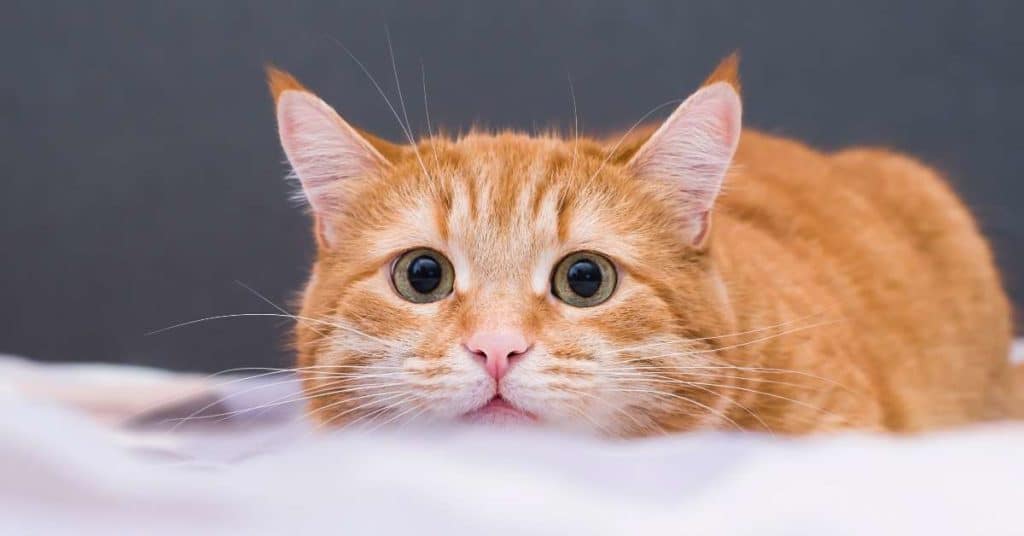
When a cat chuffs, it is usually preparing to hunt. The sound is made by exhaling quickly and deliberately through the mouth, often accompanied by a sharp hiss.
This behavior is most commonly seen in wild cats such as lions and tigers, but domestic cats may also chuff when they are feeling threatened or when they see something they want to catch.
Even though it might look like the cat is angry, chuffing is actually a sign of excitement and focus. So, if you see your cat chuffing, it’s a good idea to give them some space and let them do their thing!
8. Cat Chuffing as A Way of Courtship
Cats may also chuff as a way of courtship. This is most often seen between male and female cats who are interested in each other.
When a male cat chuffs at a female cat, it is usually a sign that he is interested in her and wants to mate. The female cat will often respond by either chuffing back or running away.
If the female cat chuffs back, it means that she is also interested in the male cat and wants to mate with him. If she runs away, it means that she is not interested in him and is not ready to mate.
Overall, chuffing is a way for cats to communicate their interest in each other and start the process of courtship.
9. They’re Trying to Get Your Attention
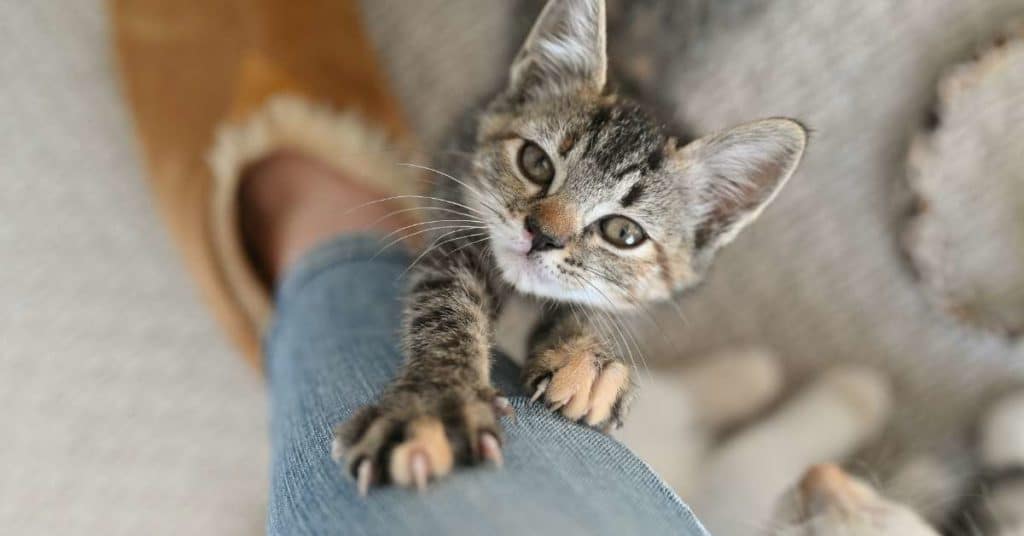
Cats may also chuff as a way of getting your attention. This is because the sound is similar to purring, which is a way that cats let us know they want something.
For example, if your cat chuffs at you while you are eating, it may be because they want some of your food. If they chuff at you while you are petting them, it may be because they want you to keep petting them.
Overall, the chuffing noise is a way for cats to let us know what they want and get our attention.
10. It’s Just Their Nature
Finally, some cats may chuff simply because it is their nature. This is because the sound is similar to purring, which is a natural instinct for cats.
Purring is often seen as a sign of contentment and happiness. However, it can also be a way for cats to communicate their needs and get our attention.
So, if your cat is chuffing, it may be because they are happy and content. Or, it may be because they want something from you. Either way, it’s just their nature.
Should I be Concerned If My Cat is Chuffing?
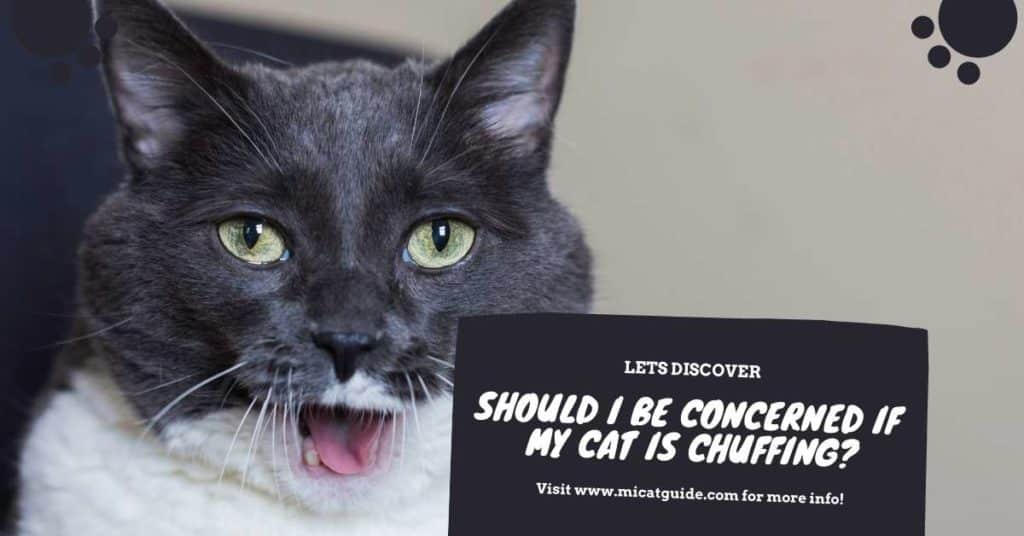
Once you know why your cat is chuffing, you may be wondering if you should be concerned about it.
Overall, chuffing is a normal behavior for cats and is nothing to be concerned about. However, if your cat is chuffing more than usual, it may be a sign that they are stressed or anxious.
If you are concerned about your cat’s chuffing behavior, it is a good idea to talk to your veterinarian. They will be able to help you determine if there is anything wrong and provide you with advice on how to best care for your cat.
My Final Thoughts on Why Cats Chuff
So, what’s the verdict? Do cats chuff to show annoyance or affection? After considering all of the evidence, it seems that both interpretations have some validity.
Cats may use chuffing as a way to communicate annoyance if they feel like they are being ignored or not given enough attention.
However, chuffing can also be interpreted as an expression of affection – either towards another cat or their human caregiver.
Ultimately, whether you interpret your cat’s chuffs as signs of love or anger will likely depend on your own relationship with them and how well you know their individual personality quirks!

